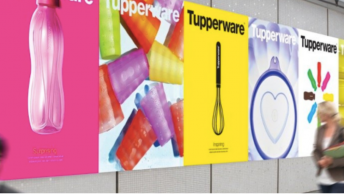If Generation X is the MTV generation, you can think of Generation Y as the American Idol generation. Generation Y, often referred to as the Millennials or Eco Boomers, have different expectations, values, and goals compared to preceding generations.
They differ in how they use products and services, respond to advertising, spend their leisure time, view their jobs, communicate with others, and perceive themselves and the world around them. These consumers have some resemblance to older segments but mostly have vast differences in their mindset and needs. For that reason, it is vital that businesses tailor their marketing messages to attract these consumers.
Demographics
The consensus is that Millennials were born from 1980 to 2000, representing approximately 76 million people in the U.S.—which is substantially larger than Generation Xers born 1965 to 1980 (46 million). Millennials are very racially and ethnically diverse (1 of 3 is a minority).
Social/Cultural
Millennials want to be perceived as cooperative and team-oriented and are not generally risk-takers. They are very different from the Boomers who represent the idealistic “me” generation. They perceive themselves as special as many have grown up with family concepts such as play dates, soccer moms, and family time.
They want to be friends: the number of friends, followers, and fans are very important to their collective thinking. Connecting them with peers is essential to holding their interest. They are also heavily influenced by their peers and brand names, which means they are susceptible to what brands their peers like or do not like.
They want to be a part of something big: this generation dreams bigger than the generation prior. They want to be the next (fill in the blank) and become extremely affluent and praised. They are not a number and will not tolerate feeling like one (perhaps that’s why they call names instead of numbers at Starbucks).
They are less religious, less likely to have served in the military and are on track to becoming the most educated generation in American history. Politically, Millennials are more focused on local activism and community service and less focused on national, international, and global matters.
Family
Millennials are definite about parenthood and view marriage and parenthood as more important than careers and success. This generation tends to fear intimacy in relationships and that is why they avoid traditional dating and they choose to travel in groups. In addition, many within this segment were protected as children.
Technology
They are tech-superior: technology is a natural part of their lives. They have a reputation for being peer-oriented, due in part to their reliance on instant communication technologies and the Internet, including email, IMs, texting, and social media platforms like Facebook, Twitter, Google+ and YouTube.
Value Proposition
Instant gratification expected: they are used to having information readily accessible via the Internet.
Strong self-fulfillment values. Their jobs need to accommodate their families and personal lives, as well as being fun, if possible.
Trust and count on authority. Yet, they are less trustworthy of individual people. Perhaps it’s from being born into an age of terrorism or maybe it’s their overprotective parents or the danger-obsessed media.
Very confident. Millennials were raised to believe in themselves (but not necessarily to be decision-makers).
Motivated to achieve. They have high expectations of themselves, seek to make an immediate impact, and do work that has meaning.
They volunteer more than any previous generation and they are more socially conscious than any generation since World War II. Studies have shown that Millennials prefer directness over subtlety, action over observation and cool over all else.
Marketing Communications
Millennials get almost all of their marketing messages through the Internet and mobile devices (which is the last place Boomers do). Redefining commercial TV for this generation is vital as they do not like commercial breaks. They want their entertainment on demand as they are accustomed to instant gratification.
For instance, product ads are being inserted into the programming in the form of product placements and program sponsorship. The marketing should be community/group based and not individual, they want to feel secured and protected with the brand.
In what ways do you attract millennial consumers?











